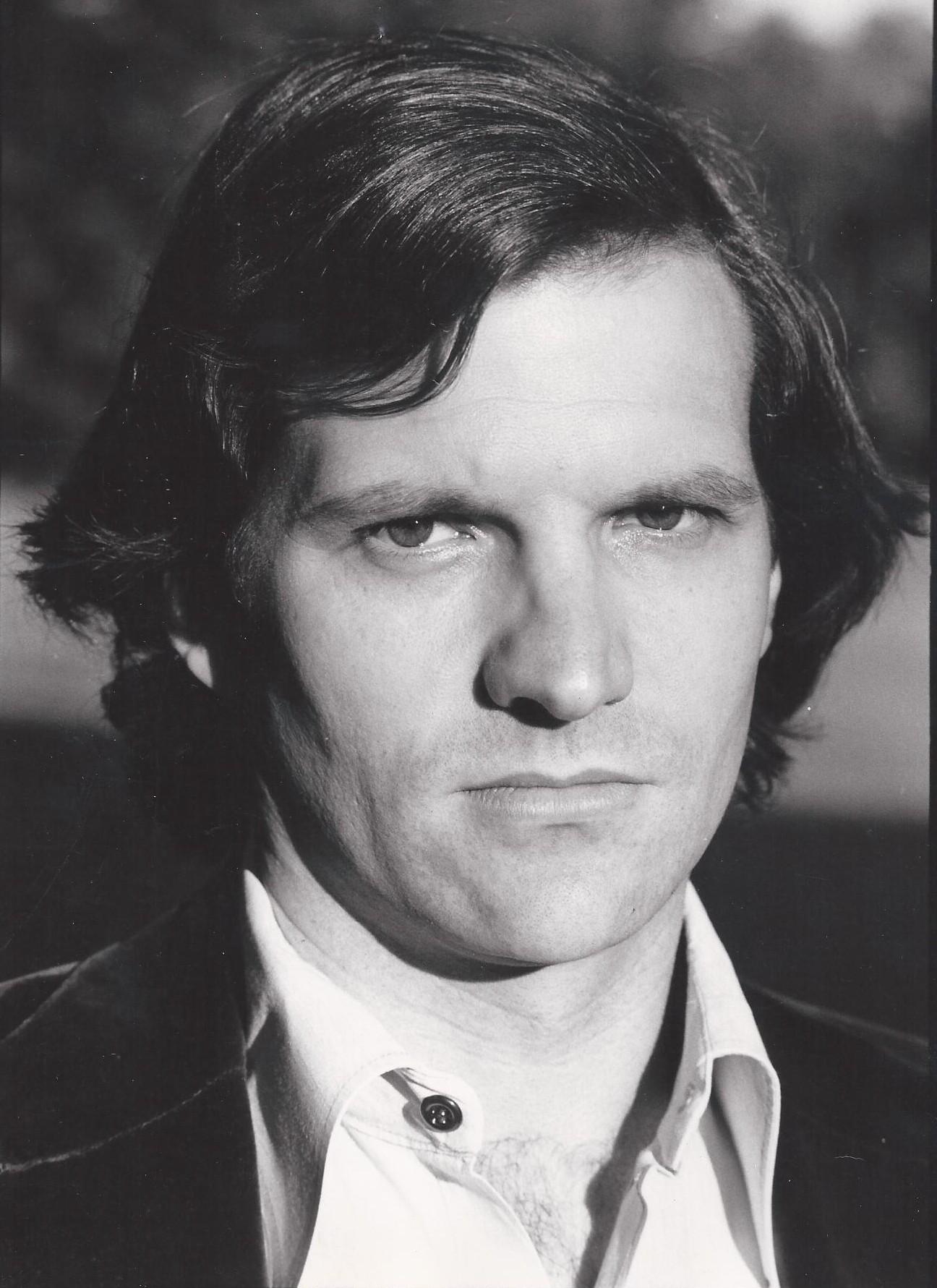Writer Lucian Truscott IV is one of the figures featured in the latest 3 Videos, and here’s a little more about him from a 1979 People piece penned by Cheryl McCall at the outset of his very abbreviated marriage to writer-photographer Carol Troy. In an age when people cared at least somewhat about print journalists, the couple was apparently, fleetingly, an F. Scott and Zelda, which is a mixed blessing, of course. An excerpt:
Lucian Truscott IV and Carol Troy both write. His current book is the best-selling novel Dress Gray; hers is Cheap Chic Update. But literary achievement isn’t the only reason the New York Times compared them, a little waspishly, to Scott and Zelda Fitzgerald. Take Truscott and Troy’s enthusiasm for disagreement.
When they met in 1975 at a party in his New York loft, she found him “awfully gruff.” The following year they were fixed up by a mutual friend. It started off disastrously. “Vassar girls and West Point guys hated each other,” ex-cadet Truscott recalls. “We wouldn’t dance with them at mixers,” Troy (Vassar ’66) explains. They went to dinner at a Japanese restaurant—”Dutch,” Troy says dryly, “and got into a huge fight.” Truscott agrees: “Sparks were flying,” and then adds, “We didn’t know they were sparks of love.”
As befits New York’s literary darlings, they were married in a Roman Catholic church in the artsy SoHo district this past St. Patrick’s Day. Then 250 guests, including Norman Mailer, were bused uptown with champagne aboard to the swank Lotos Club for the reception. (“Our only salvation is in extravagance,” Fitzgerald once wrote.)
Bride and bridegroom are not only handsome and well-thought-of; they’re rich. Dress Gray, a thriller about homosexuality and murder at the military academy, earned $1.4 million before a copy was sold—thanks to subsidiary rights negotiated by the author without an agent. Paramount bought the movie option and Gore Vidal is writing the screenplay.
…
“I wanted to go to West Point my whole life,” says Truscott, 32. His grandfather, Gen. Lucian K. Truscott Jr., was a World War II hero who commanded the Allied landing at Anzio Beach in Italy. Lucian III was West Point ’45, retiring as a colonel to become a watchmaker in 1971. Lucian’s mother, Anne, is a medical secretary; he’s the eldest of five children. The family lived in eight states, Germany and Japan, and Lucian recalls: “I grew up liking Army officers. I bagged their groceries, I washed their cars, I mowed their lawns.”
At West Point he was, however, less than a model cadet. In his sophomore year he began a letter-writing campaign to New York’s Village Voice. One epistle, he remembers, contained the line: “Jerry Rubin is palpably full of sh**.” On campus he challenged compulsory chapel attendance (it was found unconstitutional three years after he graduated).
But Truscott’s most serious transgression was getting caught—with three other cadets—using a telephone credit card number that reportedly belonged to the left-wing Students for a Democratic Society. “Hell, I wasn’t calling a subversive,” Truscott claims. “I was calling my grandmother.” Nevertheless, West Point slapped him with 30 demerits for “gross lack of judgment.” Truscott barely graduated—658th in a class of 800.
He began serving his five-year Army commitment in 1969 as an infantry lieutenant at Fort Carson, Colo. There he wrote an article on heroin addiction among enlisted men for the Voice, in which he admitted he had smoked marijuana. That, plus a refusal to serve on courts-martial because “they were patently unfair and ridiculous,” led to his resignation and a general discharge under “other than honorable conditions” in 1970. Conservative military columnist Col. Robert Heinl wrote that Truscott had “disparaged and derogated” West Point’s creed: “Duty, honor, country.”
Truscott settled on a barge in New Jersey and joined the Voice staff, freelancing on the side. Five years later he met Troy. The daughter of Francis Troy, a Borden executive, and his wife, Bernice, she grew up living American Graffiti in the suburbs of San Francisco. Dolled up in tight skirts, sweater sets and Weejuns, she liked to cruise in her parents’ hot-pink Mercury with black interior (she still owns it). After Vassar and studying film at Stanford, she turned journalist, working for Newsday, Oui and a pre-publication issue of People, among others.
During this time she made a virtue of scrimping, developing the skills she later wrote about in Cheap Chic. (It was a hit even though Troy recalls Barbara Walters describing the book on the Today show as “written only for skinny young girls who didn’t have jobs.”) Now she and Truscott visit flea markets and garage sales to furnish their New York loft and a $100,000 Victorian carriage house in Sag Harbor.
Lucian, purposely avoiding military subjects, has begun a novel about a businesswoman. “Writing doesn’t have to be a painful, gut-wrenching experience, the 3 a.m. of the soul that Fitzgerald talked about,” he says cheerfully. “I like the experience of writing.” Troy, 34, is doing a screenplay about the fashion industry and pondering a magazine editing job.
Though Fiat heiress Delfina Rattazzi has thrown a party for them and they rate a table at Manhattan’s celebrity feeding trough, Elaine’s, Truscott and Troy have an unpretentious side. Evenings they may show slides or reminisce about souvenir matchbooks and place mats. They hang out in unsung places like the Spring Street Bar in SoHo. Carol takes modern dance classes and when in Sag Harbor Lucian body-surfs. He gave up tennis, which he learned at West Point from Lt. Arthur Ashe, and skiing because “that stuff has become so chichi.”
They expect to have children within the decade, though Troy isn’t quivering with anticipation. “I don’t know anything about kids,” she says, “because I was an only child. But I’m sure Lucian will be a good father. I don’t know how many we’ll have. They make so much noise. One sounds like a lot.”•

